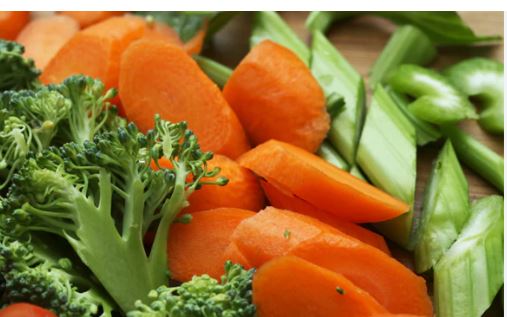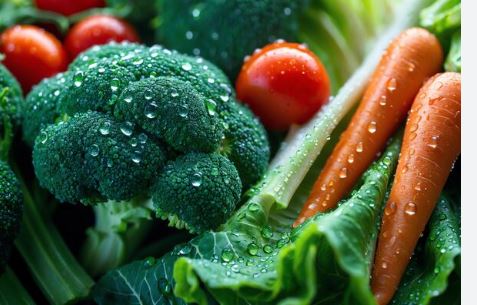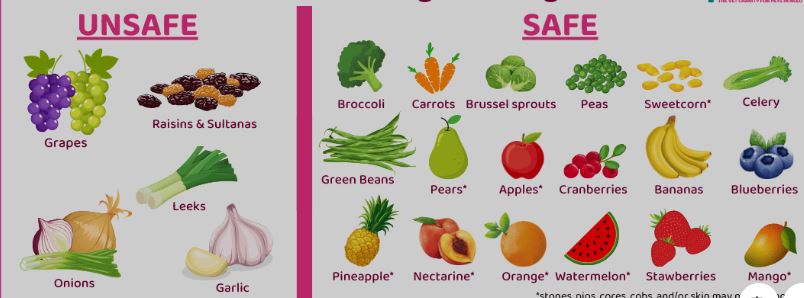
Certain vegetables are safe and beneficial for dogs, offering nutrients like vitamins, minerals, fiber, and antioxidants to support overall health. These foods can enhance digestion, boost immunity, and promote healthy skin and coats when added to a balanced canine diet. They should be plain, free of seasonings or additives, and introduced gradually to avoid digestive upset. Treats, including vegetables, should not exceed 10% of a dog’s daily caloric intake.
These vegetables come in various forms, such as crunchy roots, leafy greens, or starchy tubers, providing diverse textures that can aid dental health or hydration. Many are low-calorie, ideal for weight management, while others are nutrient-dense, supporting heart or bone health. Preparation is key—some are best cooked for digestibility, while others can be served raw in small, bite-sized pieces to prevent choking.
Fiber-rich options help regulate digestion, easing constipation or diarrhea, but overfeeding can cause gas or bloating. Some vegetables are high in natural sugars, requiring moderation for diabetic or overweight dogs. Always monitor for adverse reactions, like stomach upset, when introducing new foods, and consult a veterinarian for dogs with specific health conditions.
Certain vegetables must be avoided due to toxicity, as they can damage red blood cells, cause organ failure, or lead to digestive distress. Others have harmful parts, like leaves or raw forms, that are indigestible or contain compounds risky for kidneys. Choosing dog-safe options ensures benefits without health risks, especially for puppies or senior dogs.
Incorporating these vegetables can diversify a dog’s diet, offering both nutritional and mental enrichment. They can be used as treats, meal toppers, or training rewards, appealing to dogs’ taste and texture preferences. Veterinary guidance ensures compatibility with individual needs, making these foods a healthy, sustainable addition to a dog’s lifestyle.

Vegetables That Are Good For Dogs
Carrots
Carrots are orange root vegetables with a crunchy texture. High in fiber, beta-carotene (vitamin A), and low in calories, they support dental health by reducing plaque and promote vision and coat health. Serve raw or cooked, cut into bite-sized pieces to prevent choking. Avoid giving large quantities to diabetic dogs due to natural sugars.
Green Beans
Green beans are slender, green pods rich in fiber, vitamins A, C, and K, and minerals like calcium and iron. They’re low-calorie, ideal for weight management, and help dogs feel full. Feed raw, steamed, or canned (plain, no salt), chopped to avoid choking. Overfeeding may cause gas due to high fiber.
Pumpkin
Pumpkin, a bright orange squash, is high in soluble and insoluble fiber, aiding digestion for constipation or diarrhea, and rich in vitamins A, C, and E, plus iron and potassium. Use pure canned pumpkin or cooked fresh pumpkin, avoiding pie filling with additives. Feed in moderation to prevent stomach upset.
Sweet Potatoes
Sweet potatoes are orange, starchy roots packed with vitamins A and C, beta-carotene, and potassium, supporting heart and immune health. Cook (boil, bake, or steam) and serve plain in small amounts, as their high sugar content can affect overweight or diabetic dogs. Avoid raw sweet potatoes due to digestibility issues.
Broccoli
Broccoli has green florets and stalks, offering fiber, vitamins C and K, and antioxidants to boost immunity and reduce inflammation. Serve raw or steamed in small amounts, as isothiocyanates can cause gastric irritation if overfed. Chop into bite-sized pieces to prevent choking and limit to occasional treats.
Brussels Sprouts
These small, green, cabbage-like buds are rich in fiber, vitamins A, B1, B6, C, and K, and antioxidants, supporting digestion and immunity. Steam or boil to improve digestibility, and feed sparingly, as large amounts cause gas or stomach upset. Chop finely to avoid choking hazards.
Zucchini
Zucchini, a green summer squash, is low in calories and high in fiber, vitamins A, C, B6, and K, and minerals like magnesium, aiding hydration and digestion. Serve raw or cooked, sliced into small pieces to prevent choking. Overfeeding may cause gas due to fiber content.
Celery
Celery has green, fibrous stalks with a crunchy texture, containing vitamins A, C, and K, folate, and potassium, which freshen breath and support hydration. Feed raw or chopped into small pieces to avoid choking. Some dogs may not tolerate it well, so monitor for stomach upset.
Peas
Peas are small, green spheres rich in protein, fiber, vitamins A, C, and K, and minerals like iron and potassium, supporting digestion and reducing inflammation. Feed raw, steamed, or frozen (thawed), avoiding canned peas with added salt. Moderation is key to prevent digestive issues.
Cauliflower
Cauliflower, with white florets, is low-calorie, high in fiber, and packed with vitamins C, K, and B6, plus antioxidants and minerals like potassium. Serve raw, steamed, or roasted, cut into small florets to avoid choking. Limit portions, as high fiber can cause gas.
Bell Peppers
Bell peppers (red, yellow, green) are crunchy, water-dense vegetables with vitamins A, B6, C, and E, and antioxidants like beta-carotene, supporting skin and coat health. Remove seeds and stems, and serve raw or cooked in small pieces. All colors are safe, but red are sweetest.
Cucumber
Cucumbers are green, cylindrical, and 90% water, making them hydrating and low-calorie, with vitamins C and K. Ideal for overweight dogs, they can be served raw, sliced into small pieces to prevent choking. Avoid seasoned or pickled cucumbers, which may contain harmful additives.
Beets
Beets are deep red roots high in fiber, vitamin C, magnesium, and potassium, promoting digestion and heart health. Cook (boil, bake, or roast) and serve in small, sliced portions, as raw beets are hard to digest, and oxalic acid may pose kidney risks in excess.
Cabbage
Cabbage, with green or purple leaves, is high in fiber and vitamins C and K, aiding digestion and skin health. Serve cooked (steamed or boiled) in small amounts to improve digestibility and reduce gas. Introduce slowly to avoid stomach upset or flatulence.
Corn
Corn kernels (not cobs) are safe, providing fiber, vitamins C, B, E, and K, and linoleic acid for skin and coat health. Serve steamed or raw kernels in small amounts, avoiding seasoned or salted corn. Corn cobs are a choking hazard and indigestible.
Lettuce
Lettuce (romaine, iceberg, arugula) is low-calorie, high in water (90%), and contains fiber, making it hydrating and digestible. Serve plain, raw, and chopped into small pieces. Avoid spinach and kale in large amounts due to oxalic acid, which can affect calcium absorption.
Parsley
Parsley has green, curly or flat leaves with antimicrobial properties, aiding dental health and freshening breath, plus beta-carotene and potassium. Sprinkle small amounts of fresh or dried parsley on food. Feed sparingly, as large quantities may cause digestive upset.
White Mushrooms
Store-bought white mushrooms (button, cremini) are safe, offering antioxidants, fiber, and water for digestion. Serve raw or cooked, plain, and chopped. Avoid wild mushrooms, which can be toxic, causing vomiting or severe organ damage. Consult a vet if wild mushrooms are ingested.
Asparagus
Asparagus consists of slender, green spears with tender tips, rich in fiber, vitamins A, C, E, and K, and folate, supporting digestion and immune health. Steam or boil lightly to soften, and chop into small pieces to prevent choking. Avoid raw asparagus, which is tough to digest, and limit portions to prevent gas or stomach upset.
Green Peas
Green peas are small, round, green spheres packed with protein, fiber, vitamins A, C, and K, and minerals like iron, aiding digestion and reducing inflammation. Serve raw, steamed, or frozen (thawed), avoiding canned peas with added salt. Feed in moderation, as excessive amounts may cause bloating or digestive discomfort.
Radishes
Radishes are small, red or white roots with a crisp texture and peppery flavor, high in fiber, vitamin C, and potassium, promoting hydration and digestion. Serve raw or cooked, thinly sliced or grated to prevent choking. Introduce sparingly, as their strong flavor may irritate some dogs’ stomachs if overfed.
Butternut Squash
Butternut squash is a beige, bell-shaped squash with orange flesh, rich in vitamins A, C, and E, fiber, and potassium, supporting vision and coat health. Cook (steam, bake, or roast) and serve plain, mashed, or cubed in small amounts. Avoid raw squash, which is indigestible, and limit for diabetic dogs due to sugars.
Turnip
Turnips are white or purple roots with a mild, earthy flavor, high in fiber, vitamin C, and manganese, aiding digestion and bone health. Cook (boil or steam) to soften and chop into small pieces, as raw turnips are tough. Feed sparingly to avoid gas or digestive upset from high fiber content.
Collard Greens
Collard greens are broad, dark green leaves rich in vitamins A, C, and K, calcium, and antioxidants, supporting bone and immune health. Steam or boil to improve digestibility, and chop finely to prevent choking. Introduce slowly in small amounts, as large quantities may cause gas or diarrhea.
Vegetables to AvoidAnd Other Precautions

Onions, garlic, chives, and leeks (Allium family) are toxic, causing red blood cell damage and anemia. Wild mushrooms may be poisonous, leading to organ failure. Rhubarb leaves contain oxalates, harming kidneys and digestion. Raw potatoes have solanine, causing vomiting and bloating.
Always ensure vegetables gradually to monitor for allergies or digestive issues. Avoid toxic vegetables like onions, garlic, chives, or wild mushrooms, which can cause severe health issues, including anemia or organ failure. Rhubarb leaves and raw potatoes are also harmful. Chop vegetables into bite-sized pieces to prevent choking, and consult a veterinarian to ensure compatibility with your dog’s diet, especially for puppies or those with medical conditions.